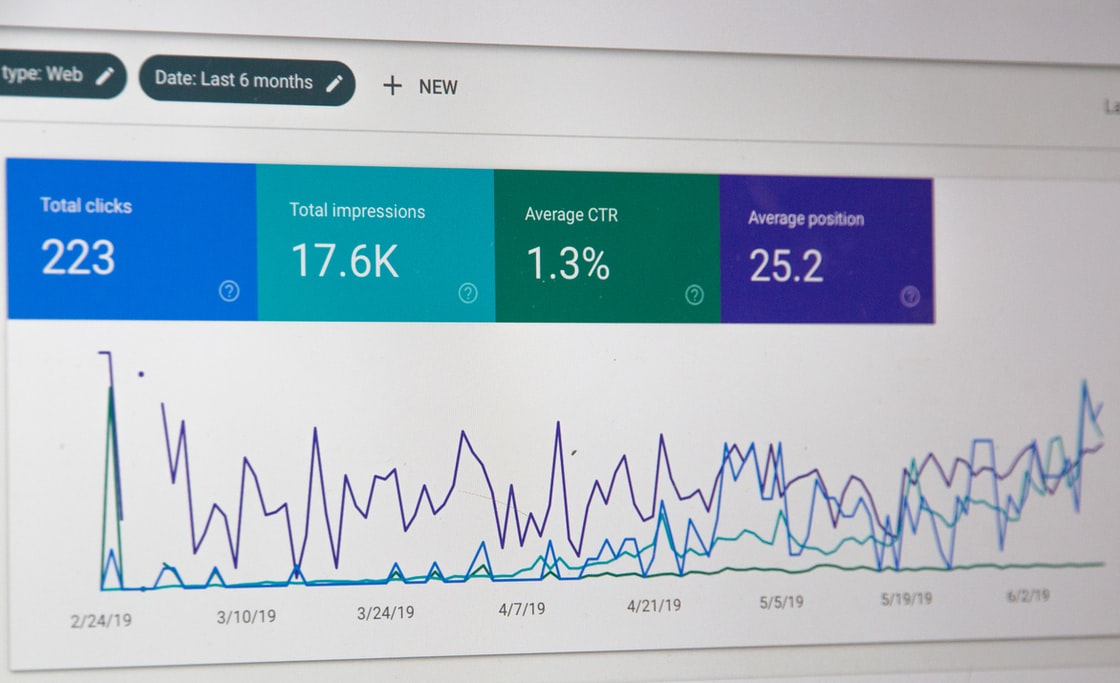Types of Google ranking drops and how to handle them
Google rankings are not set in stone. Through dedication and effort, you can drastically improve them. But once you reach the top of the page, it becomes tricky to stay there. Just like your ranking can improve, it can also deteriorate. A variety of different factors can cause Google ranking drops. How you deal with them will depend on the type of drop you’re experiencing. So, let’s take a closer look at some of the most common types of Google ranking drops and how to handle them.
When should you be worried about Google ranking drops?
Before you start panicking at the sight of your suddenly low ranking, consider this: fluctuation is normal. Between the work that you put in and the things
others in your niche do, you cannot expect your position on the results page to never change. It’ll go up and down occasionally, even frequently. This is not necessarily a cause for concern. It is so common it even has a name – the Google dance. So, take a moment to assess the situation. Is the drop a long-lasting one? Is it significant (meaning more than just a couple of positions)? Have your rankings dropped across multiple keywords? Is there a particular competitor that is overtaking your positions? These could be signs of a severe ranking drop that must be handled before it becomes a problem.

Make sure that the Google ranking drops you’re seeing are not just a part of the standard Google dance.
Google ranking drops caused by your practices
SEO is known to improve Google rankings well. Most on-page and off-page SEO tactics specifically aim to do so. But sometimes, they can backfire and cause you to make a mistake that costs you a good position in the search results.
You’ve made changes to your website
As a part of regular maintenance, you will sometimes make significant changes to your website. Perhaps you’ve changed your domain name or switched from HTTP to HTTPS. Maybe you’ve just done some reorganizing. Either way, this can cause increased downtime, poor link structure, lack of mobile optimization, and general errors. In the case of updates, these are often just temporary problems you resolve as you settle into your new website. But when left unaddressed, they can negatively affect your ranking.
- What can you do about it? First, find out what the problem is by analyzing your website using Google Search Console. If the problem is something you can fix, like error pages, do so. If downtime is caused by maintenance, your ranking should go back up on its own. Finally, if the issue is so severe that you cannot fix it, restore an older version of the website.
You’ve incurred a penalty due to suspicious practices
There is no one right way to practice SEO. But there are certainly many wrong ways to do it. If you do things like link spamming, keyword stuffing, article spinning, or try to trick search engine bots, you can get penalized. While these so-called grey and black hat SEO practices can have short-term benefits, the penalties they incur can set you back dozens of positions and even get you blacklisted.
- What can you do about it?Stick to white hat SEO, and you’ll avoid penalties. If you’ve already received a fine, stay away from grey or black hat SEO in the future.

Being investigated for bad SEO practices can severely hurt your rankings and reputation.
Google ranking drops caused by outside factors
It’s possible that you’re doing everything right and still experiencing a significant drop in rankings. This could be due to the behavior of your competitors, users, or business partners.
A competitor outranks you
One of the reasons why your position might suffer on the results page is because someone else has risen to your place. Your competitor may have managed to drastically improve their local SEO, go viral on social media, or successfully market a new product launch. This is why you can never rest on your laurels in SEO – staying on top requires constant work.
- What can you do about it? The first thing you’ll want to do is identify the competitor or competitors who now outrank you. Then, analyze what they’ve been doing recently that’s made them so successful. Finally, apply what you’ve learned from them to your website and further improve on it.
User behavior changes
Google’s goal is to serve up results its users will like. So, when what the users are looking for changes, so do the Google results. If you were, for example, relying on traffic from long-tail keywords and your users suddenly start searching for short-tail keywords, you’re likely to see a drop in rankings.
- What can you do about it? Unfortunately, user behavior is unpredictable and entirely out of your control. The only thing you can do is to perform in-depth market research regularly and adjust your practices accordingly.
You’ve lost backlinks
Backlinks from other websites can significantly improve your ranking by contributing to your authority and directing traffic to your pages. But what happens if you are suddenly left without them? If the websites that host your backlinks remove them or simply go down, this can cause a severe drop in rankings for you.
- What can you do about it? Find out why you’ve lost backlinks. If the host website is still up, contact the administrator and ask them to reinstate your links. If not, look for ways to gain new backlinks. A quick and easy way to promote your brand and improve your rankings can be to hire a professional like AZ Citation Services and get listed in business directories.
Google ranking drops caused by the search engine
Finally, you cannot forget arguably the most significant factor in your rankings – the search engine itself. Google is constantly working on improving its search results, and some of the changes implemented can affect your ranking.
The algorithms have changed
Google is constantly fine-tuning its algorithms to become even better at locating what its users are after. Although these changes are usually minor, they can affect your rankings if they happen in an area that is particularly important for your SEO.
- What can you do about it? Not much – Google will change its algorithms as it sees fit. Your best bet to maintain or recover rankings after these changes is to follow the latest news from technology and SEO, learn how the new algorithms work, and adjust your practices.

Changes in algorithms are often minor, but they can have major consequences for your ranking.
The search results page has changed
Although this doesn’t happen very often, drastic changes to Google’s search results page can affect rankings. This happened when Google introduced rich snippets or started favoring multimedia content. If you don’t have the element Google starts featuring, you’re likely to drop lower on the results page.
- What can you do about it? Once again, follow the updates and adjust your practices to the new results page.
You can’t entirely avoid ranking drops, so learn how to handle them!
There is no way to avoid Google ranking drops entirely – not only are they often dependent on factors that are out of your control, but they’re also perfectly normal and expected. So, what you need to do instead is prepare for them. It’s a good idea to regularly track your ranking so you can spot changes in time. Learn to recognize severe drops that need to be addressed. Finally, make sure to identify the causes for the drops you’re experiencing and then develop a strategy to deal with them.
